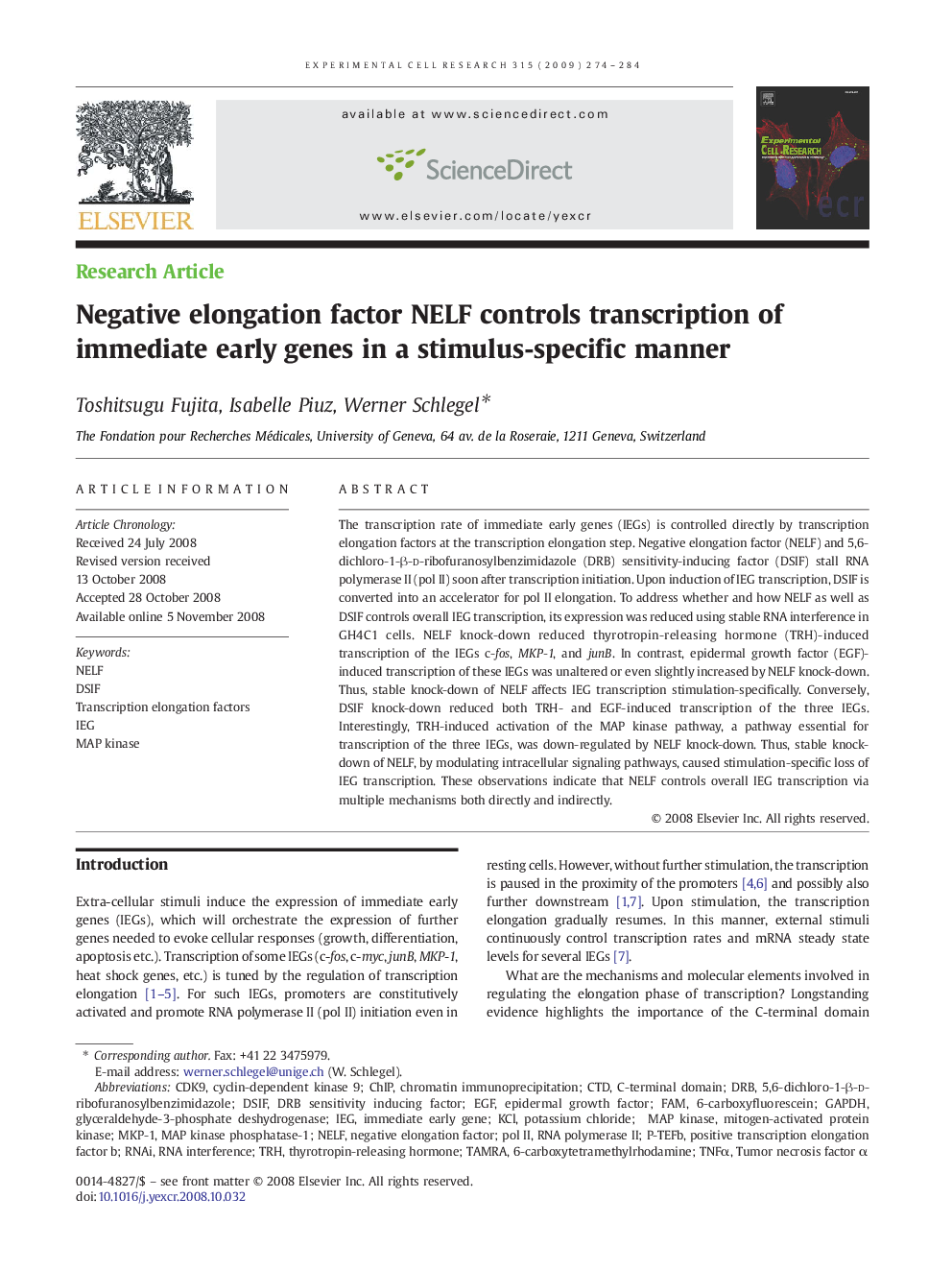| Article ID | Journal | Published Year | Pages | File Type |
|---|---|---|---|---|
| 2131875 | Experimental Cell Research | 2009 | 11 Pages |
The transcription rate of immediate early genes (IEGs) is controlled directly by transcription elongation factors at the transcription elongation step. Negative elongation factor (NELF) and 5,6-dichloro-1-β-d-ribofuranosylbenzimidazole (DRB) sensitivity-inducing factor (DSIF) stall RNA polymerase II (pol II) soon after transcription initiation. Upon induction of IEG transcription, DSIF is converted into an accelerator for pol II elongation. To address whether and how NELF as well as DSIF controls overall IEG transcription, its expression was reduced using stable RNA interference in GH4C1 cells. NELF knock-down reduced thyrotropin-releasing hormone (TRH)-induced transcription of the IEGs c-fos, MKP-1, and junB. In contrast, epidermal growth factor (EGF)-induced transcription of these IEGs was unaltered or even slightly increased by NELF knock-down. Thus, stable knock-down of NELF affects IEG transcription stimulation-specifically. Conversely, DSIF knock-down reduced both TRH- and EGF-induced transcription of the three IEGs. Interestingly, TRH-induced activation of the MAP kinase pathway, a pathway essential for transcription of the three IEGs, was down-regulated by NELF knock-down. Thus, stable knock-down of NELF, by modulating intracellular signaling pathways, caused stimulation-specific loss of IEG transcription. These observations indicate that NELF controls overall IEG transcription via multiple mechanisms both directly and indirectly.
